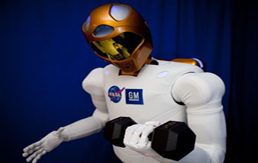Environment Roundup
There's good news about both sea turtles and solar energy.

In the event of a nuclear accident, a new filter made of natural materials could treat water contaminated with radioactive iodine.

ANNUAL MEETING SPECIAL: The new science of aeroecology, deconstructing taste preferences, new ways to store energy, and 3-D printers that could one day produce replacement organs.
A new study of the bacteria in cow's stomachs could help boost the production of biofuels.
NATURE OF INVENTION: Sea urchin teeth could inspire new nano-materials, and hornet stripes could lead to better solar technology. Also: automatic transmissions could revolutionize electric wheelchairs, and there's new research on the genetics of hair color and male pattern baldness.
A new nano-coating for thermoelectric materials could make generating electricity from heat much more efficient.

SPACE UPDATE: NASA prepares to launch a human-like robot into space, engineers are designing a more efficient system for launching payloads into orbit, why microwaves aren't as dangerous as some people think, and the physics behind the color of clouds.

Some people think microwave ovens and cell phones are dangerous, but their fears are not backed up by science.
TECHNOLOGY UPDATE: Ecologically-friendly plastic, a cleaner way to produce hydrogen fuel, cell phone air sensors, the perils of spaceflight, the ethical implications of synthetic life, and more.
Exposing pregnant women to a common air pollutant may impact their children's intelligence.
TECHNOLOGY REPORT: Lung-powered batteries, a spider-inspired water-repellent, art-restoring lasers, the health risks of polycarbonate plastics, and more.
Mountaintop removal mining's devastating effects on the environment, ancient Martian lakes, an herbal disappointment, fish that punish cheaters, and reading and writing in the brain.
Debunking 2012 doomsday hype, developing a better rocket fuel, vegetarian spiders, and the genetics of aggression in Africanized bees.
